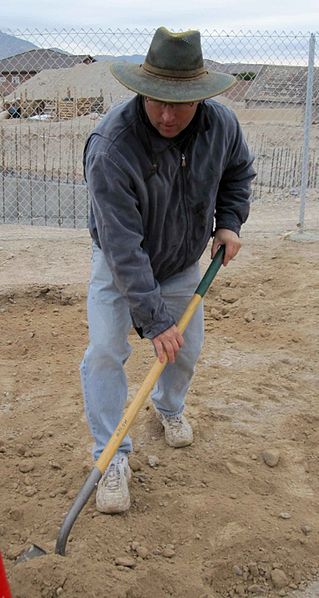
Work is one theme in Proverbs chapter 10. This is applicable to us because we spend much of our lives in our work. In this chapter, the father tells his son about work. The father is concerned not so much about what to do for work but about how to work in general. “A slack hand causes poverty,” he says, “but the hand of the diligent makes rich” (Pr. 10:4). Diligence is the ideal about work that the father wants to pass down to his son. This transference of the ideal will play a part in the son’s rite of passage into manhood.
As with many sections in the book of Proverbs we are dealing with comparisons, opposites in this case. It is one thing against another thing, one thing as opposed to something else. The father highlights not only the ideal of diligence, but the opposite of the ideal. “A slack hand,” he says, which in this case may refer to laziness, sloppiness, or a neglect of responsibilities. In any case it leads to poverty.
The next verse is another comparison of opposites. “He who gathers in summer is a prudent son, but he who sleeps in harvest is a son who brings shame” (Pr. 10:5). The difference between summer and harvest is interesting. Typically, one thinks of harvest time as the fall. This may refer to someone gathering all summer long. Or perhaps it means late summer, which may be a parallel to the harvest time. In any case, one should be gathering and not sleeping during this specific time of the year.
The ideal the father is trying to communicate to his son in this verse is arguably the same ideal as in the previous verse, diligence. It is the same message communicated in another opposite comparison structure. It is the diligence in the work of gathering that shows one as prudent. The father reinforces the ideal in another comparison, and for the same reason. The father’s hope is that the son will carry on these values, exercising them in his own life. By doing so, the ideal indirectly plays a part in the son’s rite of passage into manhood.
If we are thinking about work in terms of financial profitability, the advice that the father gives to his son here is very pragmatic and would likely be quite useful to his son if he were to apply it.
The father is saying that if one were interested in becoming wealthy, the way to do so would be to exercise diligence in one’s work. Perhaps there is still no guarantee of wealth even by exercising diligence one hundred percent of the time, then or now. However, one will certainly not become wealthy if one has a slack hand. This, by the father’s logic, will only lead to poverty.
The advice is also pragmatic for the son simply because people in general spend much of their lives working. That being the case, it is useful to have some general ideals about how one should work. Diligence, as the father points out, betters one’s chances for success. More importantly though, the ideal should become a part of one’s character. This is likely the father’s true hope. He hopes to hand this character trait down to his son. If successful, the father is indirectly calling his son into manhood. This calling from the father and the son’s response is a part of the son’s rite of passage into manhood. It is the beginnings of a journey that the son will walk out the rest of his life.

